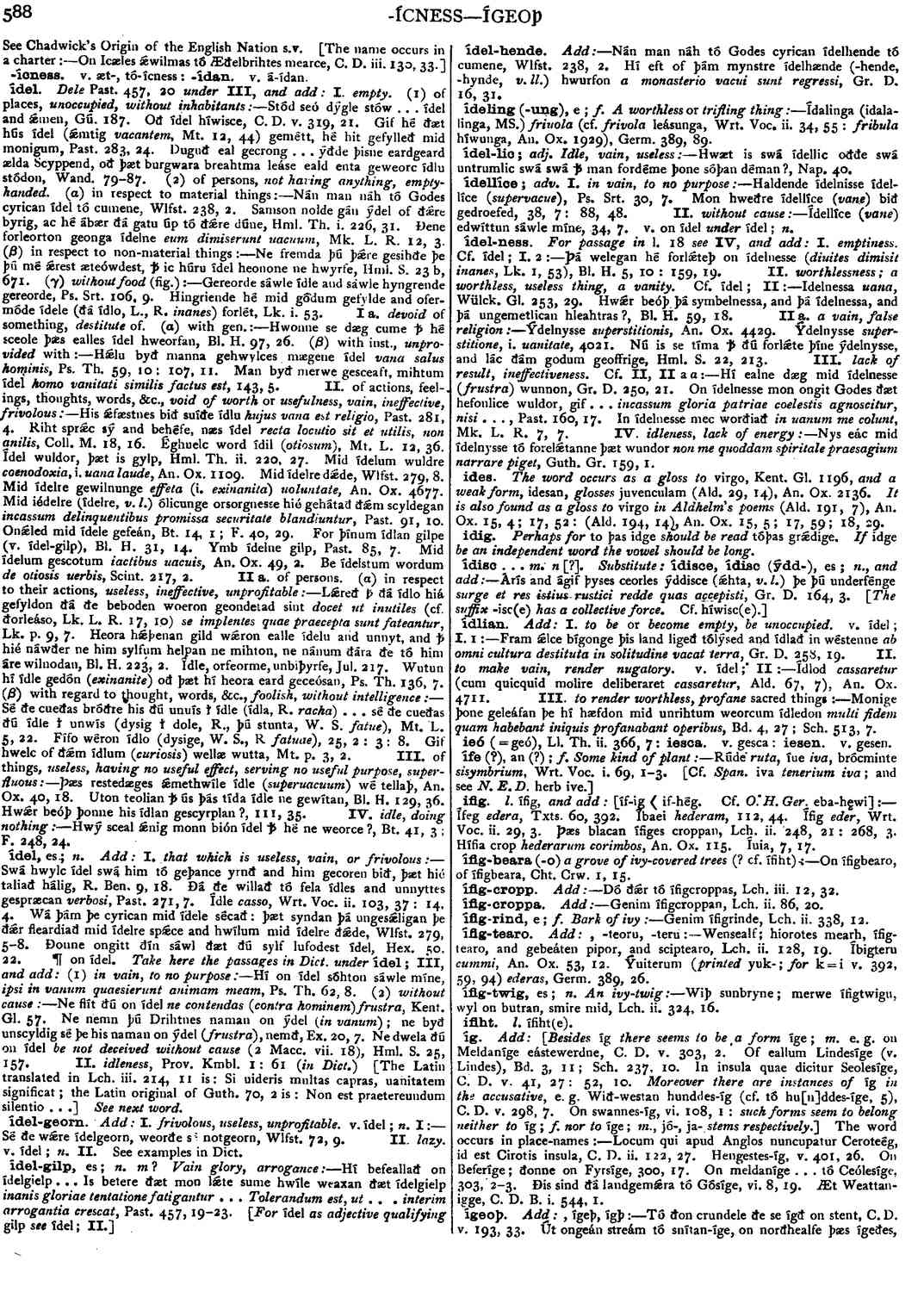ídel
- noun [ neuter ]
-
Swá hwylc ídel swá him tó geþance yrnð and him gecoren bið, þæt hié taliað hálig,
- R. Ben. 9, 18.
-
Ðá ðe willað tó fela ídles and unnyttes gespræcan
verbosi.
- Past. 271, 7.
-
Ídle
casso,
- Wrt. Voc. ii. 103, 37 : 14, 4.
-
Wá þám þe cyrican mid ídele sécað: þæt syndan þá ungesǽligan þe ðǽr fleardiað mid ídelre spǽce and hwílum mid ídelre ðǽde,
- Wlfst. 279, 5-8.
-
Ðonne ongitt ðín sáwl ðæt ðú sylf lufodest ídel,
- Hex. 50, 22.
- ¶ on ídel. Take here the passages in Dict. under ídel;
-
Hí on ídel sóhton sáwle míne,
ipsi in vanum quaesierunt animam meam,
- Ps. Th. 62, 8.
-
Ne flít ðú on ídel
ne contendas (contra dominem)frustra,
- Kent. Gl. 57.
-
Ne nemn þú Drihtnes naman on ýdel (
in vanum); ne byð unscyldig sé þe his naman on ýdel (frustra ),
nemð,- Ex. 20, 7.
-
Ne dwela ðú on ídel
be not deceived without cause
(2- Mace. vii. 18), Hml. S. 25 157.
Bosworth, Joseph. “ídel.” In An Anglo-Saxon Dictionary Online, edited by Thomas Northcote Toller, Christ Sean, and Ondřej Tichy. Prague: Faculty of Arts, Charles University, 2014. https://bosworthtoller.com/53808.
Checked: 0